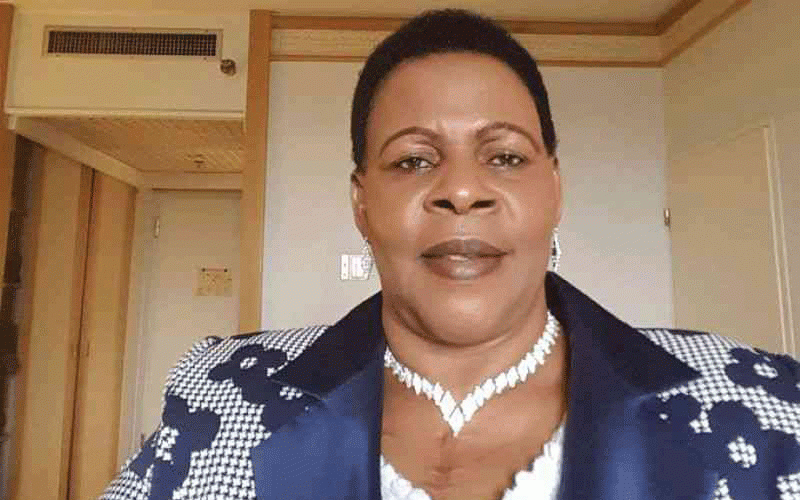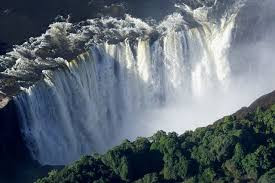
The climate crisis is one of the most pressing issues of our time, with far-reaching consequences for the environment, human health, and the economy.
However, the impact of climate change is not felt equally by all. Marginalised communities, including low-income neighbourhoods, indigenous populations and communities of colour, are disproportionately affected by the climate crisis.
This is particularly evident in Africa, where climate change is exacerbating existing social, economic, and environmental challenges.
Climate justice refers to the principle that all individuals and communities have the right to a safe and healthy environment, regardless of their race, ethnicity, income, or geographical location.
It recognises that climate change is not just an environmental issue, but also a social justice issue.
Climate justice demands that we address the root causes of climate change, including systemic inequalities and injustices, and work towards a more equitable and sustainable future.
In Africa, marginalised communities are facing some of the most severe impacts of climate change.
Rising temperatures, changing rainfall patterns, and increased frequency of extreme weather events are affecting agriculture, water availability, and human health.
- COP26 a washout? Don’t lose hope – here’s why
- Out & about: Bright sheds light on Vic Falls Carnival
- COP26 a washout? Don’t lose hope – here’s why
- Out & about: Bright sheds light on Vic Falls Carnival
Keep Reading
For example, in Zimbabwe, climate change is exacerbating drought and food insecurity, particularly in rural areas where communities rely heavily on rain-fed agriculture.
The 2015-2016 El Niño-induced drought, for instance, resulted in a 50% decline in maize production, leaving millions of Zimbabweans facing food shortages.
Similarly, in Ethiopia, climate change is altering the availability of water, leading to increased competition for this scarce resource.
This has resulted in conflicts between pastoralist communities and farmers, as well as between different ethnic groups.
In South Africa, climate change is increasing the risk of water scarcity, particularly in informal settlements, where access to clean water is already limited.
Another example of climate injustice in Africa is the impact of climate change on small-island developing states, such as the Seychelles and Mauritius.
These island nations are facing some of the most severe impacts of climate change, including rising sea levels, increased frequency of cyclones, and saltwater intrusion into freshwater sources.
Despite contributing minimally to greenhouse gas emissions, these countries are bearing the brunt of climate change, with devastating consequences for their economies, infrastructure, and human well-being.
In Zimbabwe, the impacts of climate change are also being felt in urban areas, where poor waste management and lack of sanitation infrastructure are exacerbating the spread of waterborne diseases.
The 2018 cholera outbreak in Harare, for instance, resulted in over 10 000 cases and 69 deaths, highlighting the need for improved sanitation and hygiene infrastructure in urban areas.
The impacts of climate change on marginalised communities in Africa are not limited to environmental and economic challenges.
Climate change is also having significant social and cultural impacts, including the erosion of traditional knowledge and practices, the loss of cultural heritage, and the displacement of communities. For example, in Ghana, it is threatening the existence of the ancient city of Cape Coast, which is facing erosion due to rising sea levels.
This not only poses a significant cultural and historical loss, but also threatens the livelihoods of local communities who depend on tourism and fishing.
So, what can be done to address the disproportionate impacts of climate change on marginalised communities in Africa?
First and foremost, it is essential to recognise the historical and systemic inequalities that have contributed to the current climate crisis.
This includes acknowledging the role of colonialism, slavery, and other forms of oppression in shaping the modern world and its environmental challenges.
Second, climate policies and programmes must be designed with marginalised communities in mind.
This includes investing in climate-resilient infrastructure, providing climate education and training, and supporting climate-related research and development. Climate policies must also be inclusive and participatory, involving marginalised communities in decision-making processes and ensuring that their needs and concerns are addressed.
Third, climate justice requires a commitment to human rights and social justice.
This includes recognising the rights of indigenous peoples to their ancestral lands and resources, as well as the rights of marginalised communities to clean air, water, and soil.
Climate justice also requires addressing the root causes of poverty, inequality, and social injustice, which are often intertwined with environmental degradation and climate change.
In Zimbabwe, for instance, the government has established the Climate Change Management Department to co-ordinate climate change mitigation and adaptation efforts.
However, more needs to be done to support marginalised communities, including providing climate information and early warning systems, promoting climate-resilient agriculture, and supporting climate-related research and development.
In conclusion, climate justice is a critical issue that requires immediate attention and action.
Marginalised communities in Africa, including those in Zimbabwe, are facing some of the most severe impacts of climate change, from drought and food insecurity to displacement and cultural erosion.
It is essential that we recognise the historical and systemic inequalities that have contributed to the current climate crisis and work towards a more equitable and sustainable future.
*Gary Gerald Mtombeni is a journalist based in Harare. He writes here in his own personal capacity. For feedback Email garymtombeni@gmail.com/ call- +263778861608










